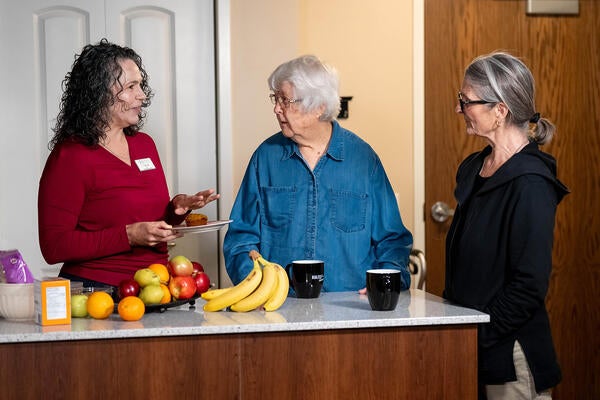
Canada lags behind other countries in providing school food programs to children in need
Only five per cent of students in Canada participated in a school meal program

Only five per cent of students in Canada participated in a school meal program
By Media RelationsCanada is at the back of the pack when it comes to students accessing nutrition programs at school, shows a new study.
A University of Waterloo-led international study of more than 10,000 children in six different countries found that approximately half of all students received breakfast or lunch at school in countries such as the United States or Chile. However, only five per cent of students in Canada participated in a school meal program.
Canadian schools also fell short for the most vulnerable students, with only 27 per cent of students with the highest level of food insecurity participating in school meal programs in Canada. This is compared to more than two-thirds in the United States and Chile, both of which have national school nutrition policies.
“Schools are important places to provide meals for children, especially among low-income students who may not have reliable access to healthy foods at home,” said David Hammond, principal investigator and a professor in the School of Public Health Sciences at Waterloo.
Most countries around the world offer some form of school meal program aimed at providing nutritious food to students. “Across all countries surveyed, we found that participating in a free school meal program was associated with higher fruit and vegetable intake during school lunch. Children participating in school meal programs also reported eating less unhealthy food in the countries with the most comprehensive policies,” Hammond said.
Researchers surveyed 10,565 youth aged 10-17 from Canada, Australia, Chile, Mexico, the United Kingdom and the U.S. through the 2019 International Food Policy Study.
“In countries without national school nutrition guidelines, such as Canada and Australia, the responsibility for school meal programs falls to individual school boards, community organizations, or charities. Despite their best efforts, this approach is no match for comprehensive provincial or national programs when it comes to feeding children with the great need.”
Karen Hock, a Waterloo Public Health Sciences doctoral student and first author of the paper, said the COVID-19 pandemic has also demonstrated the importance of school meal programs, especially among disadvantaged students.
“Countries such as the United Kingdom and New Zealand have recently expanded their school meal programs in response to the pandemic to ensure that students in need can continue to access adequate nutrition, which is fundamental for their long-term health and well-being,” Hock said.
Hock believes school meal programs are a valuable way to promote healthy dietary intake in children and support those in need. “It’s unfortunate that Canada is the only G7 country without a national school meal program.”
The study, Awareness of and participation in school food programs among youth from six countries, co-authored by Hammond and Hock, alongside other investigators from the International Food Policy Study, was published in the Journal of Nutrition. Funding for the study was provided through the Public Health Agency of Canada and Canadian Institutes of Health Research.

Read more
The Government of Canada announces funding to support research in food policies and medical devices

Read more
How machine learning empowers collaboration between computer science, math and medical research

Read more
Dr. Heather Keller discusses the need to transform mealtimes in Canada’s long-term care homes from a service to a meaningful form of care
The University of Waterloo acknowledges that much of our work takes place on the traditional territory of the Neutral, Anishinaabeg, and Haudenosaunee peoples. Our main campus is situated on the Haldimand Tract, the land granted to the Six Nations that includes six miles on each side of the Grand River. Our active work toward reconciliation takes place across our campuses through research, learning, teaching, and community building, and is co-ordinated within the Office of Indigenous Relations.